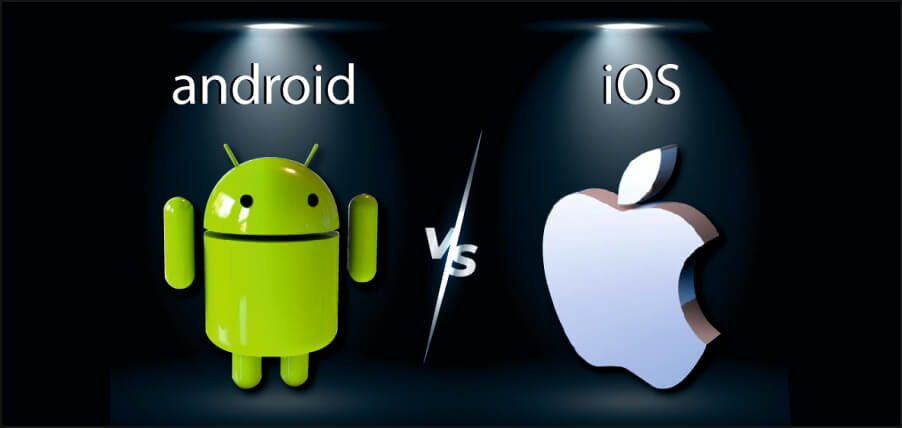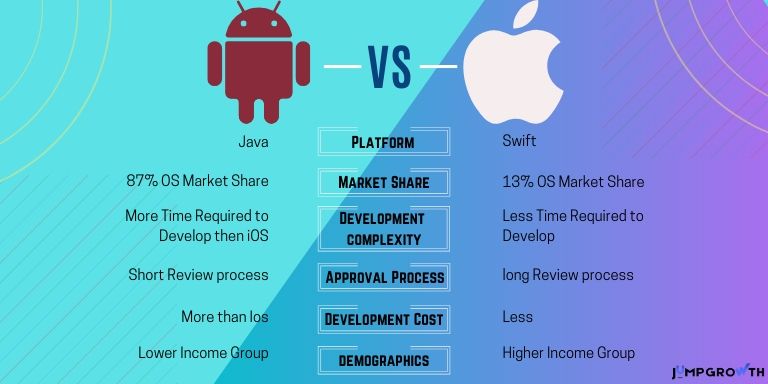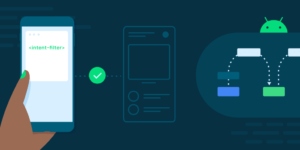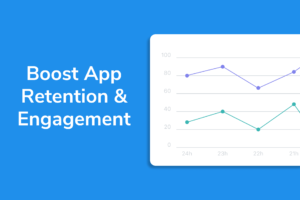Android app development is the process of developing applications for devices that run on the Android operating system. These Android apps are developed using popular programming languages like Java, Kotlin, JavaScript, C++, or C.
Developed by Google, the Android platform powers multiple smartphones, tablets, wearables, and other smart devices. Therefore, Android dominates the mobile OS industry as it’s compatible with the majority of smartphones and provides numerous features.
As a result, the market has observed a rise in Android mobile app development.
Major Differences Between iOS and Android App Development
While talking about comparisons between Android and iOS development, from a user perspective, these two platforms are generally compared based on device performance, market share, popularity, usability, scalability, and user-friendliness.
On the other hand, from the perspective of the mobile app development team, they generally consider which platform your mobile app will go for.
In fact, both operating systems follow a similar architecture and provide an intuitive user experience. However, there are several differences in how each app is developed and maintained, as well as in the target audience they are designed for.
Programming Languages
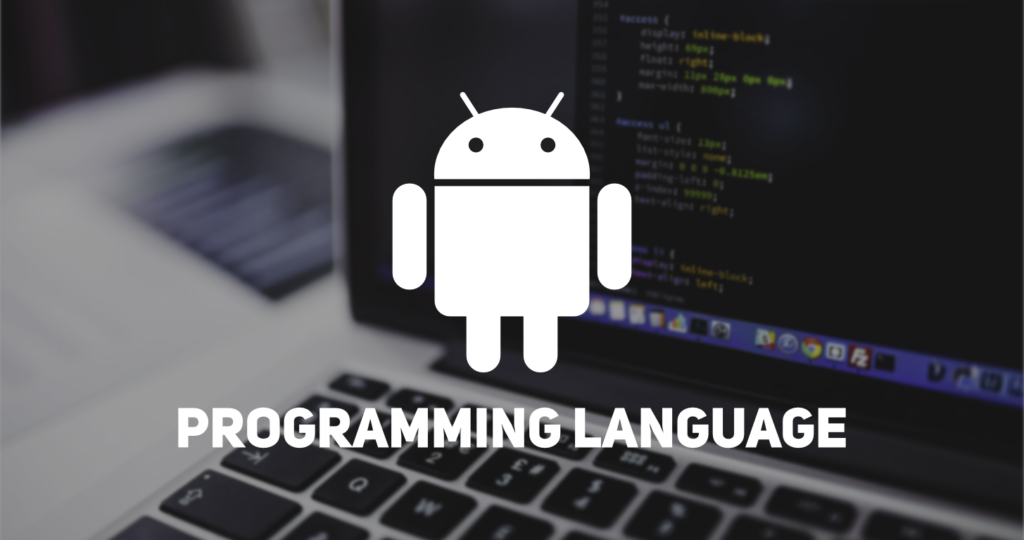
The prime difference between Android and iOS app development is the choice of their programming languages.
iOS app development utilizes Swift or Objective-C, whereas the Android operating system uses Java and Kotlin to build an Android application.
In recent times, Kotlin is becoming popular amongst developers over Java to build a robust and scalable Android application. Similarly, Swift has gained its spot if you want to develop a native application that is more compact and requires less coding.
Moreover, there is another option for developers, too, if they want to go for cross-platform app development. This approach enables applications to run across devices, irrespective of their OS and device. Flutter, React Native, or Unity are primary tech stacks used to build cross-platform applications.
Complexity of Development Process
The process of developing apps for Android and iOS differs substantially in complexity. Android app development is more challenging and complicated than iOS apps as developers build apps for device manufacturers, models, and screen sizes.
On the other hand, iOS app development is easier as developers only have to build apps for Apple devices, which is less complex than building for every device and model on the Android platform.
Therefore, the complexity of iOS app development is much lesser than Android development.
Application Security
Application security for iOS and Android app development follows different approaches due to their guidelines, policies, and distinct architectures.
Since Android is an open-source platform, developed applications tend to face challenges like fragmentation and higher malware risk, which require regular security updates and rigorous testing.
In addition, uploading or deploying Android apps on the Google Play store lacks strict moderation. It’s essential to integrate third-party authorization solutions to highly secure your Android app.
On the other hand, iOS app development comes with a close ecosystem that adheres to strict App Store guidelines and a uniform device environment. As a result, the developed iOS apps are more secure and less vulnerable.
In fact, iOS app developers must follow diligent security practices, such as code obfuscation and encryption, to protect sensitive data. If an app fails to meet Apple’s standards and policy, there is a higher chance of it being rejected by the App Store. Also, it has a longer review process, so apps may take longer to be approved.
In a nutshell, the Apple App Store has a more complex and longer process for uploading apps than the Google Play Store.
UI Design Difference
The main difference between Android and iOS app development is UI design or philosophy.
The design of iOS applications is about minimalism and simplicity. It follows Human Interface Guidelines, which focus on elegant and intuitive navigation, simple shapes, uniform icons, and a clean look.
On the other hand, Android app design is more flexible and customized. Android app development is focused on bold, colorful, and tactile elements. Furthermore, they have complex layouts with rich colors, animations, and more gradients.
Understanding this UI design difference ensures apps align with each platform’s design philosophy, enhancing both user experience and consistency.
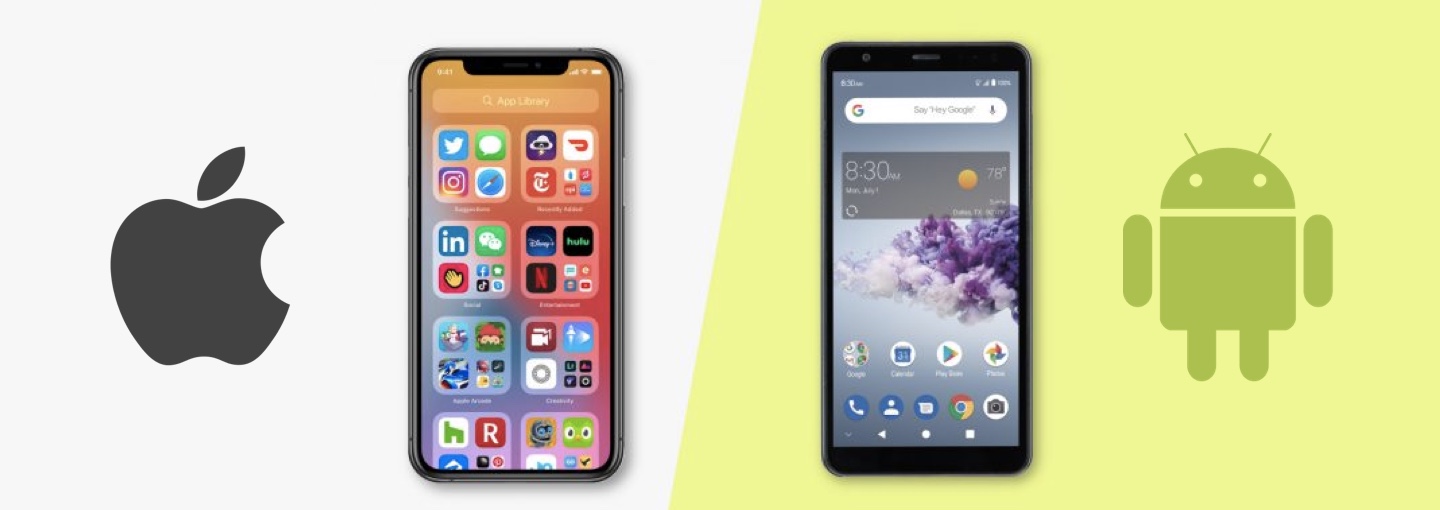
Development Cost
Costs could be another factor that distinguishes between Android vs iOS app development.
However, determining the app development cost for iOS and Android is very difficult as it depends on various factors.
As said earlier, Android app is developed considering a wide range of device fragmentation and many device variations. As a result, developers would need time to build an app that is compatible with every Android-powered device. This increases the development time by 40%. Hence, it’s quite costly to build an Android app.
When talking about iOS app development, some additional factors could affect its cost, like an Apple developer account subscription costs, which could range from $99 to $299 annually for the enterprise version. Surprisingly, there are 1.96 million apps available for download from the Apple App Store.
Besides, Google only charges $25 for a one-time payment.
Audience Demographics
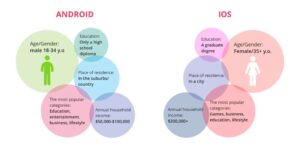
Android dominates the market with its broad audience reach and platform potential. The primary reasons behind the widespread adoption of Android are the affordability of devices and easy accessibility. Consequently, Android is hugely popular in countries like India, China, Brazil, and Southeast Asia.
On the other hand, iOS is very popular in developed regions like North America, Europe, and Japan, due to higher disposable incomes and strong brand loyalty. Therefore, when building an Android or iOS application, geography plays an important role as it defines your target audience and who will use your app.
App Testing
A testing stage in the mobile app development process is essential. The developed app needs to be checked whether it’s performing seamlessly under every condition. That’s why different methods are used to test and check Android and iOS applications.
iOS simulator is used to test iOS applications, whereas Android emulator is used to test Android apps.
The prime difference is that the iOS simulator is much faster than the Android version. On the other hand, the Android emulator is more realistic than its iOS counterpart since it has the comparative advantage of being a potent virtual machine with a CPU.
Therefore, the iOS simulator often fails to produce accurate and realistic renderings of Apple products. To check the app’s interaction flow and identify any flaws, running multiple tests on actual mobile devices is crucial.
Head to Head Comparison: iOS vs Android App Development
Both operating systems in mobile app development have their own pros and cons. Let’s understand a few factors and go through their head to head comparison.
- Android applications are developed using Java or Kotlin programming languages, whereas iOS apps are developed using Swift or Objective-C.
- Since Android has a larger global market share, it may be more advantageous to your target audience. On the other hand, iOS app development helps your business generate higher revenue per user.
- Android applications are available on Google Play Store and third-party stores, whereas iOS applications are exclusive to the Apple App Store.
- iOS development is often cheaper and cost-effective due to standardized hardware, whereas Android development can be more costly due to device diversity.
- iOS apps frequently use in-app purchases and subscriptions, whereas Android apps often rely on ads for monetization.
- Android app development follows Material Design guidelines, while iOS app development has Human Interface Guidelines.
- While developing Android apps, Android uses Gradle and Android SDK; on the other hand, iOS app development uses Swift Package Manager and iOS SDK.
- iOS app deployment has a stricter review process, whereas Android app development has a less stringent app review process.
- iOS is a closed ecosystem, which is more controlled and secure, whereas Android is an open-source, which poses more security challenges.
Android vs iOS App Development: Which Platform Should You Consider First?
Now the question comes: which platform or operating system will be suitable for your business or startup?
The answer is that it completely depends on several factors: your target audience, project requirements, budget, revenue goal, and desired app features. However, if you aim to develop an app for both platforms, then cross-platform app development might be your best choice.
However, based on our experience, we advise starting with native app development. Build an app for the platform your users are most likely to use. Once the app becomes well-established, stable, and successful, you can then move to develop for the other platform.
- Why do developers prefer Android over iOS?
- Is iOS development more profitable than Android?
- What is the biggest advantage Android has over iOS?
Android is an open-source operating system developed and maintained by Google. Most smartphone manufacturers in the world consider Android to be their primary operating system. It’s more customizable, affordable, and accessible than iOS for developers. Because of these reasons, developers prefer Android over iOS
iOS app development is more profitable in generating revenue, even though Android has the most users. As per Business of Apps, Apple's revenue from app subscriptions in 2023 accounted for 76% of the total earnings. This is because iPhone users spend more money on these apps than Android users.
One of the biggest advantages of Android over iOS is the customization policy it offers to users. Since Android is open-source, it enables users to personalize their devices according to their unique preferences.
Categories
Latest Post
Tips for Reducing App Load Time and
Strategies to Reduce App Abandonment and Increase


